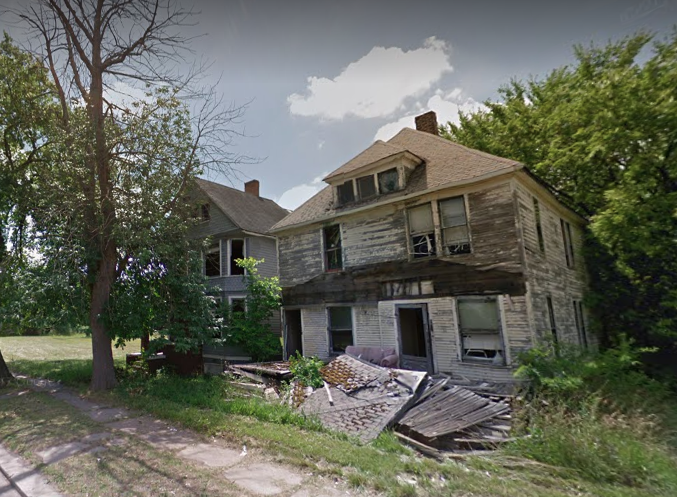
Linwood Street in Detroit (Google maps photo)
If you look at Detroit through the prism of downtown, Midtown and Corktown, then yes, Detroit is experiencing a major renaissance.
But Eric Seymour, a Brown University researcher who has extensively studied Detroit’s neighborhoods, sees it much differently
"There are far more neighborhoods that are declining than are gentrifying," he tells Bridge Magazine's Joel Kurth in a lengthy interview.
"There are some instances where properties are being converted to market rates and folks being pushed out. But I’m looking at the neighborhoods, where displacement is occurring without gentrification and how city and county policies and market forces have exacerbated displacement outside downtown."
Seymour wrote papers for the University of Michigan about how land contracts have hampered Detroit neighborhoods. He now studies evictions, foreclosures and water shutoffs for Brown.
Kurth writes:
Seymour describes a multi-act tragedy that saw more than a third of city homes go into foreclosure, transforming Detroit from one of the leading cities for black homeownership to being a majority of renters and topping the nation in eviction rates (more than 30,000 per year.)
The dominoes fell like this, Seymour argued: First, Detroit was targeted for subprime mortgage refinances. When homes foreclosed, they were sold for cheap to investors who didn’t pay taxes. Then the homes were tax foreclosed by Wayne County to less scrupulous buyers who either sold them on land contracts or converted them to rentals. In the process, many of the homes have become unlivable, but when renters withhold payment for repairs, they are evicted, Seymour said.
Here's a sampling of the Bridge interview:
Bridge: Detroit is a few years removed from bankruptcy with limited resources. Are they being directed to one area at the expense of others?
Seymour: It’s hard not to see it that way. Someone like Dan Gilbert, who has already sunk so much capital into the city, wouldn’t continue to develop unless he finds it profitable. There’s been a lot of research that shows (tax) subsidies are really giveaways because developers would spend the money anyway. So that money could be spread out evenly to other areas of Detroit.
There’s money coming to Detroit precisely because it’s profitable. It’s not because of these tax breaks. That’s just a way for corporations to hold cities hostage to get more concessions.
Bridge: What are you seeing at the neighborhood level?
Seymour: Predatory actors have been able to accumulate large numbers of properties with inventory and extract more money from neighborhoods using land contracts or through being predatory landlords.
In neighborhoods, there were large number of subprime mortgage refinances. Almost all of those properties were repossessed, and then Fannie Mae and Freddie Mac, Wells Fargo and Bank of America sold those properties in bulk to investors. They got rid of the ones they could through land contracts and the ones they couldn’t, they just let go into tax foreclosure.










